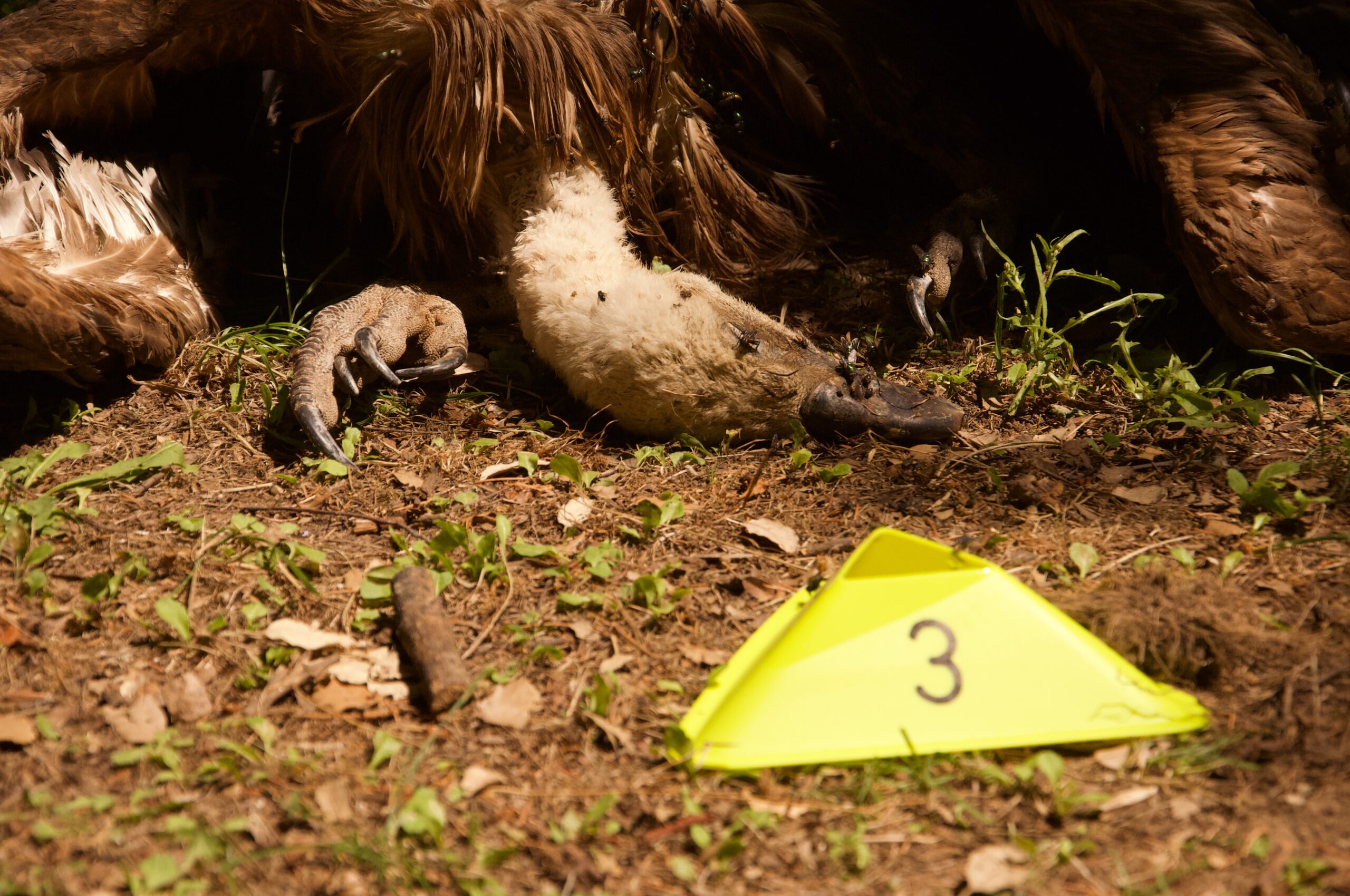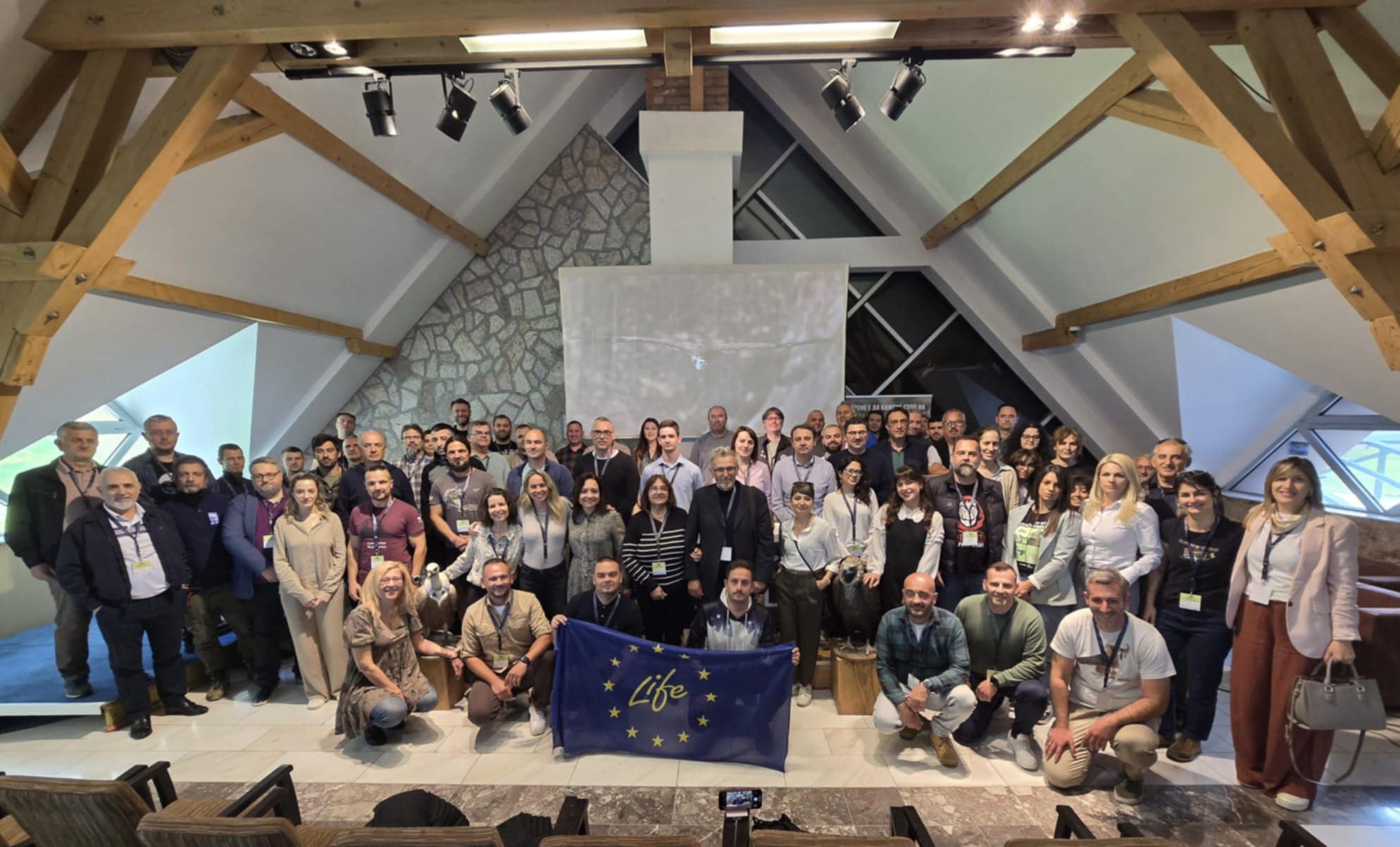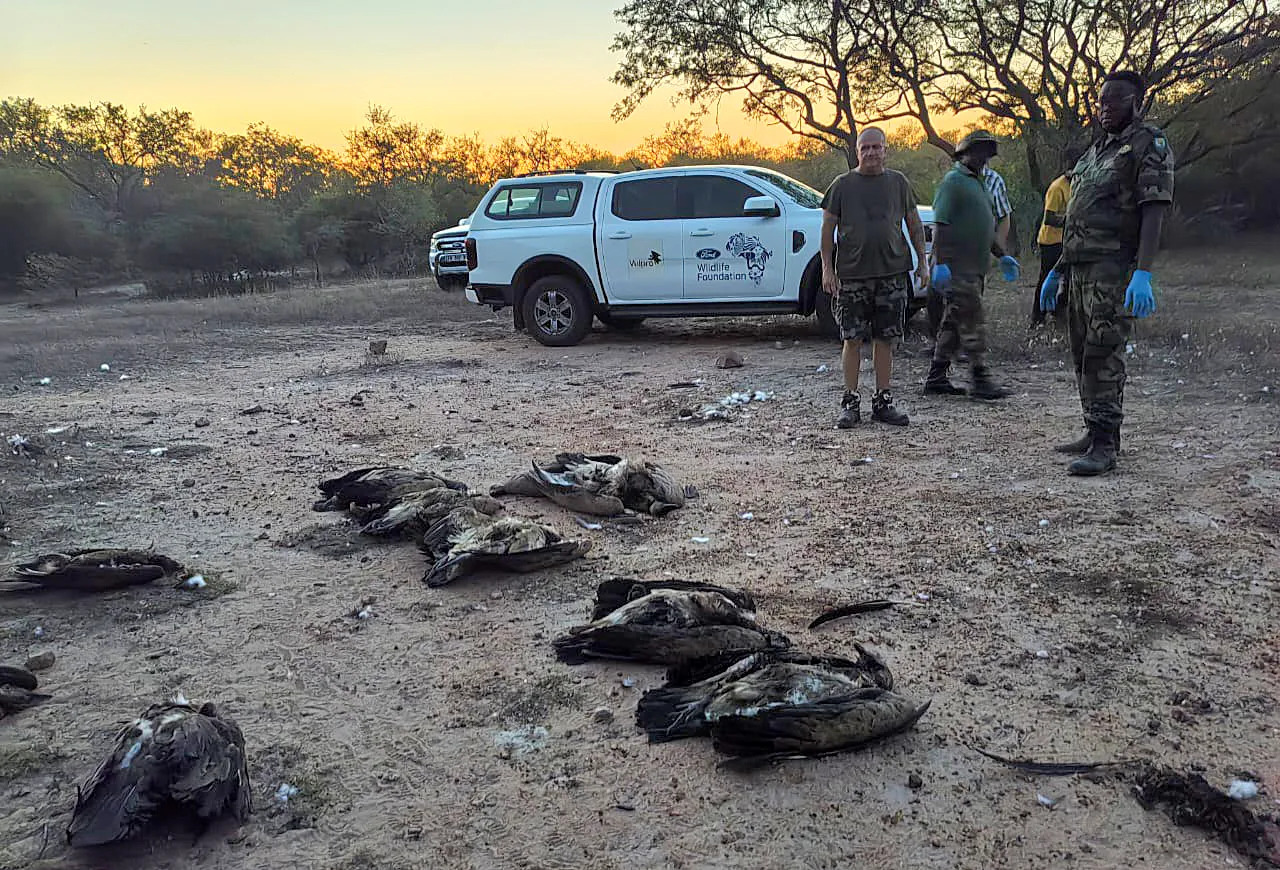
Hundreds of vultures have been found dead this week in Guinea-Bissau (Guiné-Bissau), with the death toll continually increasing over the past few days. So far, the known vulture deaths amount to 648 – a significant blow to the country’s vulture populations. Vultures in Africa have faced a dramatic decline in recent years, which has led the IUCN to list three species as Endangered and four as Critically Endangered. With vulture species on the brink of extinction in Africa, such an incident could pose a fatal blow to the conservation status of several species, at national and even regional level.
Guinea-Bissau becomes a vulture graveyard
Earlier this week, an incident was reported in the eastern province of Bafatá resulting in 200 vulture deaths. Later on, the death toll increased. At first, poisoning was the suspected cause, as this has become a frequent occurrence in Africa and vultures’ biggest threat according to the Multi-Species Action Plan to Conserve African-Eurasian Vultures adopted by the Convention for Migratory Species. “In recent years, we have unfortunately faced several incidents where hundreds of vultures died around a poisoned carcass, usually due to human-wildlife conflict with predators, we first thought this was such a case”, said André Botha, the Endangered Wildlife Trust Africa’s Vultures for Africa Programme manager. However, the situation became more confusing when dead birds were found across several areas within the Bafatá province – such dispersion complicated the case, as typically poisoning incidents are more concentrated. Therefore, the precise cause of the deaths remains to be established. The Critically Endangered Hooded vulture (Necrosyrtes monachus) seems to be the most affected species, and this incident can deal a significant blow to its status in West Africa.

Responses to the incident
Thanks to the involvement of the Ministries of Public Health, Agriculture and Forestry, the Secretary of State for the Environment, and the governor of Bafatá, the relevant authorities reacted rapidly. A quick response team was sent to the region and had incinerated at least 135 vulture carcasses by 24th February to minimize the risk of spread. But the situation turned out to be much more complicated than thought as reports of further vulture deaths arrived from across the country – even though not all of those have been officially confirmed yet. Now the World Health Organisation office in Bissau is also involved as this incident can also pose a threat to public health. Samples have been collected from the vulture carcasses and will be sent to Ghana for laboratory analysis to help determine the cause of death.
Urgent request for further action
The Vulture Conservation Foundation (VCF) and the IUCN’s Vulture Specialist Group (VSG) sent the attached letter below to the Guinea-Bissau Minister of Agriculture and Forests to stress the urgency of the situation and to offer their support. The views expressed and support offered apply also to the other organisations behind this release. More specifically, the main priority is now to help identify the causes and what could be at the origin of this phenomenon causing widespread vulture deaths.
Whether this is a case of poisoning or something else is not yet clear. However, in such critical cases with many vulture deaths, it is crucial that the authorities act quickly and decisively to identify the source of mortality, but also incinerate all dead vultures to prevent further mortality and contamination, thus also safeguarding public health. “The authorities so far have been very responsive and acted quickly – this needs to be maintained until the cause of mortality is found”, said José Tavares, VCF´s director.
Letter to the Guinea-Bissau Minister of Agriculture and Forests
Adobe Acrobat Document 79.9 KB










